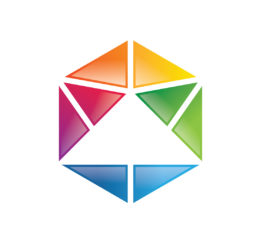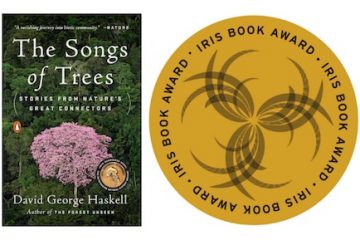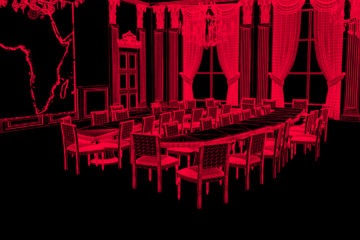Looking Back: A Report on the Paradoxical Plausibilities Symposium – Astrological Interpretation from Different Perspectives (13–14 April, Berlin)
By Sophia Löwe
The question of astrological plausibility seems to spur endless discussions. Most professional astrologers and their clients grant astrology a high level of plausibility, while public opinion paradoxically deems astrological interpretations vague, generalizing, or “pseudo-scientific.” However, a population survey has shown that people who express the most negative opinions about astrology are often also those who know the least about it. So it comes as no surprise that, as much as astrology is ridiculed, it is also admired, practiced, and integrated into the lives of those who aspire to understand its complex interpretations and plausibilities. With the rise of modern astronomy and the natural sciences, astrology has increasingly lost its standing not only in academia, but also in society at large. Skeptics point to astrology’s seemingly unscientific nature and its inability to fit into the frames of hegemonic systems of knowledge acquisition. If we take a close look at the genealogy of astrology from its origins ca. 4000 years ago, we see that its role and reputation as an explanatory model has undergone many changes – changes that make little sense if we fail to contextualize astrology within a framework of science, religion, and cultural history at large.
Consequently, this symposium was built around participants’ genuine interest in the historical and contemporary associations between astrology and other disciplines. Fascinated by these polarizing opinions about astrology, we asked ourselves:
- What can we learn from the history of astrology, in relation to categories such as “religion” or “science”? Where do discrepancies arise?
- How does astrology arrive at its findings, and how is plausibility established in the process of astrological interpretative practice? Are there similarities with psychotherapeutic or medical practice?
- Is there any truth in claims that today’s scientific models offer opportunities for a holistic view of the cosmos that also integrates astrological approaches?
- What about the epistemological and anthropological questions philosophy addresses? Can interdisciplinary fields offer potential explanations for astrological interpretations?
A group of around 30 curious interdisciplinary minds gathered in Berlin, eager to discuss astrology – its interpretations, representations, and diverse forms. Organized by Counterpoint together with the German Astrologers’ Association (DAV), the underlying theme of the two-day symposium was astrology as a knowledge system, which participants discussed from different professional perspectives, reflecting on its history, its contemporary uses, and its status as a “pseudo-science.” In line with Counterpoint’s general ethos, the atmosphere encouraged critical knowledge production as well as reflection. Participants and speakers engaged in animated conversations about the differences between astrology as a practice and a praxis, as well as its standards of rationality, challenging the popular perception of astrology as trivial daily horoscope hocus pocus.
We met at a cozy art space (DECAD) in Berlin, where five speakers from very different professional backgrounds led participants on a journey through their respective fields’ approaches to astrology.
After a brief welcome and introduction by Rafael Gil-Brand and Kocku von Stuckrad, the social scientist Gerhard Mayer gave an overview of the history of astrology and its position in the social sciences.
| In particular, he focused on astrology as an empirical study, questioning the “unscientific” nature of the discipline and situating it within a cultural-historical framework. By tracing the histories of the social sciences alongside astrology, Mayer showed the strong interactions and parallels between the fields in their cultural settings, presenting them as correlative rather than antagonistic. One example of such interplay is the work of Carl Gustav Jung. A psychologist known especially for his contributions to the psychoanalytic analysis of the unconscious, he is also well known for merging “esoteric” or “occult” traditions with his pursuit of scientific advancement. |
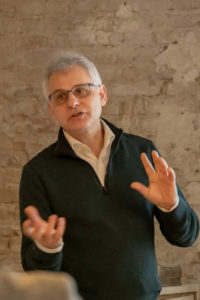 Gerhard Mayer |
Jung’s infamous notion of “archetypes” resonated strongly with astrological interpretations and was useful for developing an understanding of the human psyche based on different psychological characters (or “archetypes”). Consequently, Jung is recognized as having replanted the seed of astrology in our “Western” landscape; many psychological astrologers still use this vocabulary today.
Mayer’s presentation provided incentive to question the boundaries drawn between astrology, religion, and science. By engaging with the use of astrology’s empirical tools, he highlighted the conundrum language poses in its attempt to embed astrology in a social-scientific worldview. Providing concrete examples of empirical records produced in the context of astrology, Mayer further complicated the common claim that astrology is un- or pseudo-scientific.
Demonstrating the multifaceted perspectives represented at the symposium, the next speaker took a prognostic perspective. Christof Niederwieser studied International Business with a focus on the cultural history of prognostic forecasting. Consequently, he was interested in comparing different models and expressions of predicting the future, ranging from astrology and technology to economics.
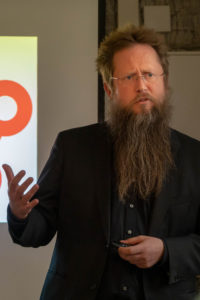 Christof Niederwieser |
As such, he viewed astrology not so much as a projection of the individual psyche, but rather as an instrument used to predict future events. With the help of colorful graphs, Niederwieser illustrated the fascinating parallels one finds when comparing such models. For instance, recurring cycles in the development of technologies appear to be aligned with different stages of interaction between the planets Uranus and Pluto. Avoiding speculation, the presentation merely positioned different cyclic models alongside one another. |
Niederwieser was not invested in validating or falsifying astrology (or any of the other disciplines), but rather in highlighting the overlap that becomes visible when we begin by comparing these models to see what that comparison can tell us, without excluding any of them in advance.
After lunch, Gertrude Ulrike Voltmer, an experienced psychotherapist and astrologer, kicked off the afternoon session. Juxtaposing astrology as an analytical tool with the immediate experience of astrology, Voltmer reiterated the importance of embodied, intuitive experience in therapy as well as in astrological counseling.
| She described this intuitive experience as an essential foundation for her practice as a musician, scrutinizing the process of exploring reality via the senses first, relegating reason to second place. Consequently, an astrological interpretation can at times be very helpful for theories of categorization, but in a psychotherapeutic setting, it must be secondary to the client’s direct experience of the world and their immediate feelings in connection to it. Voltmer concluded that in therapy, self-efficacy has to precede astrology. |
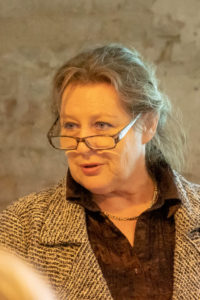 Gertrude Ulrike Voltmer |
If a person does not see themself as potentially effective, it is hard for them to find a use for a system that provides a playing field for the self, as a birth chart may. Put differently: the limitations inherent in interpreting a person’s birth chart also limit its efficacy in a therapeutic setting.
To encourage discussion and reflection on what was presented in the first round of lectures, the last portion of the day was dedicated to workshops. Whilst one group discussed astrology as a discipline in the context of the rift between religion, science, the humanities, and economics – a workshop facilitated by Christof Niederwieser and Gerhard Mayer – a second group discussed the use of astrology in psychotherapeutic settings with Gertrude Ulrike Voltmer. Despite a long, intense day, participants and speakers enthusiastically engaged in a critical exchange of opinions and experiences.
Leaving the venue at the end of the first day, my mind was spinning with new ideas and inspiration. Excited and also slightly depleted, I was certain of one thing: the issues around astrology and its scholarly assessment are more complex than I could have imagined! As a perfect point of reflection on hegemonic categorizations such as “science” and “religion,” astrology seems almost a playground for different academic viewpoints.
Day two promised to be a success when people streamed into the bright space on Sunday morning, full of new energy and enthusiasm. The room was humming with conversation when the chemist Harry Tobler took the floor.
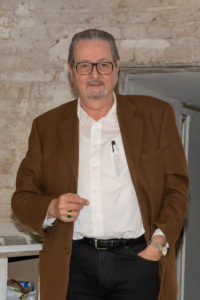 Harry Tobler |
His presentation compared the astrophysical characteristics of the planets with their astrological interpretations. Planet by planet, he walked the audience through their chemical and physical conditions, highlighting how the attributes of the respective planets reflect their astrological interpretations. Tobler pointed out that such a comparison is useful in educating astrologers, but also in making the planets come alive. Instead of thinking about Venus, for instance, as an abstract phenomenon based on a unifying concept of meaning, this perspective illuminates the complexity of the planet and its dynamic interactions with the other planets. |
After a big round of applause, the last speaker, Kocku von Stuckrad, rounded off the event with yet another perspective on astrology. Given his background in religious and cultural studies, von Stuckrad turned to the philosophical and sociological questions around astrological hermeneutics. He also asked whether astrology can be seen as a counterpoint to the hegemonic power structures of science.
| To get a clearer picture of the implications of such an approach, von Stuckrad took a step back to look at the ways in which knowledge systems have interacted with one another in European culture since the eighteenth century. Especially in the portrayal of nature and its interweaving with theories of culture and science, an interest in astrology becomes more than merely a “pseudo-scientific” endeavor. The different ways in which astrology has been integrated over time shed light on the changing relationship of the human being to the cosmos. |
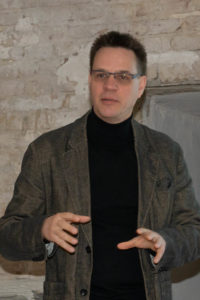 Kocku von Stuckrad |
When it comes to holistic, integrative models of reality, astrology is an interesting case. The materiality of the stars (and the birth chart) becomes tangible and intersects with the meaning-making procedures with which astrologers engage. As suggested in recent theories of relationality and the entanglement of human and nonhuman persons and objects, astrology embeds the human in a context of nonhuman actors and offers a look at networks of agencies that leave anthropocentric models of interpreting the world behind.
Likewise, astrology draws on situational agency, signifying that meaning arises in the individual encounter and is thus hard to quantify. As a thorn in the side of the natural sciences, astrology may serve as a contrapuntal system of non-hegemonic knowledge, helping us pinpoint the problems of the hegemonic system. Due to its holistic character, astrology is still finding its position between religion, science, and culture.
The symposium came to a close with one large workshop, where all the participants and contributors sat in a circle to exchange questions and address several topics for further discussion:
- What role can/should astrology play in psychotherapy alongside other therapeutic methods? To what extent are astrology and psychology linked?
- Can one “believe in” astrology? What does this mean for the positioning of astrology within frameworks of religious belief?
- What factors are important in encouraging the general public to accept a rational, academic approach to astrology? What considerations hinder or foster such dialogue?
- What role do power structures play in situating astrology, science, and religion? How can we pinpoint shifts in this dynamic? How does this serve to explain gaps between these disciplines? What can a historical perspective add to this?
- Which hegemonic power structures are at work in knowledge production? How can astrology serve to trace the lineages of such structures?
We ended our two-day workshop with lots of material for further discussion!
#
Sophia Löwe is an artist and a Research Master’s student of Religious Studies at the University of Groningen. Through the mediums of painting, poetry, and performative installation art, she explores the possibility and plausibility of non-binary, alternative realities and spheres. Her current academic research circles around Black, Sci-Fi and Hip Hop Feminism, Mysticism, and Creative Imagination.
